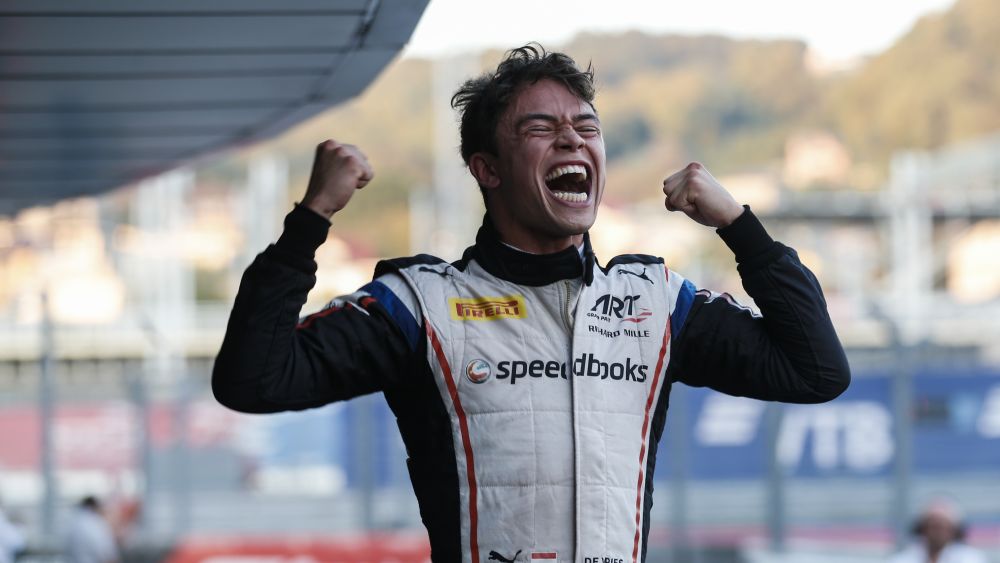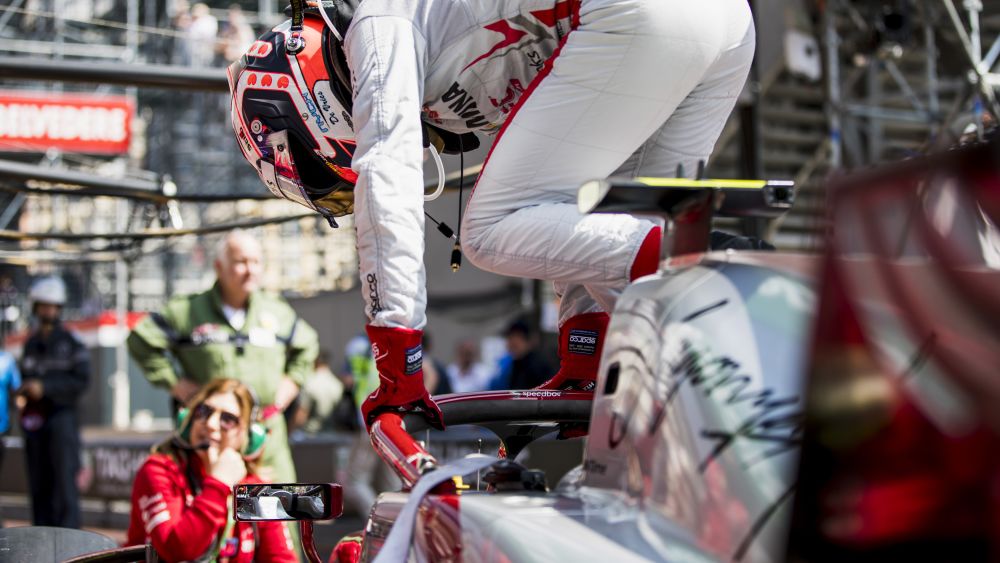Feature
Part 1: Nyck de Vries’ road to glory

It all started so promisingly. When the class of 2019 first set foot onto the tarmac of the Spanish pitlane in Jerez de la Frontera, they were greeted by the cool winter sun and the optimism of a new campaign. While much of the field were in the process of getting to grips with the updated machinery, Nyck De Vries was setting in motion a season of dominance. After a frustrating 2018, where he had finished fourth behind a crop of drivers who would all come to join Formula 1, he felt his time was now.
As much as the hype around Mick Schumacher took many of the early headlines, make no mistake, pre-season was all about Nyck de Vries: his end to 2018 had seen him labelled as the favourite. He didn’t disappoint.
In nine testing sessions, he finished fastest in a remarkable six of them. It looked set to be his year.
But then, the campaign began and De Vries was nowhere to be seen on the podium in Round 1. Instead, he finished sixth and seventh. It wasn’t supposed to start like this.
Except, it was.
The Dutchman wouldn’t fail to make the podium again in any of the nine rounds that followed, collecting an unprecedented 13. In doing so, he broke the record for the most podiums in F2, with 23 overall - he now leads the charts by four. Last season’s champion, George Russell, ‘only’ sealed 11. The Williams F1 driver’s points’ tally is also well within reach of the Dutchman, who has just 21 points fewer, with two races remaining.

Discussing that difficult first round, the 24-year-old has since revealed that he expected it. He knew he wouldn’t be quick enough in Bahrain to challenge for the win, or a podium. It was for that reason that he never panicked. That tough first round was all part of the plan, he’d prepared for it – it was supposed to start like that.
“We always knew that Bahrain was always going to be a very difficult race for me personally because of the nature of track, but perhaps also our package.
“We get so little testing that it was quite unrepresentative because of weather conditions. It was extremely cold and you face different problems than you do during the season.”
The Dutchman started 2018 in similar fashion, finishing sixth and fifth in Round 1. But what followed, was much, much different. A season in which he was widely expected to challenge at the top, was derailed in the three rounds that succeeded Bahrain in 2018.
De Vries blames those three rounds as to the reason why his title challenge didn’t pick up the momentum it perhaps should have done. The numbers were pretty damming too: three retirements from three rounds. Sandwiched between those crushing blows were to second place finishes, teasing at his flickering potential, but the “mistakes” he made ultimately left him with too much ground to make up, despite the months still remaining.
He admits as much too, saying: “I really blame myself for missing out on the real battle because I simply made too many mistakes at the start of the season in positions or situations where we were able to score big points. Then you're on the back foot from the beginning.”

The issue when poor finishes or retirements come, and in such regularity, is the self-imposed pressure that driver’s then place on themselves to ‘make up those points.’ This leads to further mistakes and unnecessary risks being taken.
Last season, De Vries felt this. This season, he saw it in others. He continued: “I can see that difference the same way in our opponents this season. As soon as we started to grab the lead and have a little advantage, you could tell that they were sometimes making mistakes which were not necessary because they had the feeling that they had to try and catch up.”
For De Vries, there was no panic, not when he started the season off the podium, not when he failed to win in Round 2, and not when Nicholas Latifi started to run away with an early season lead. He had seen it all unravel before, he knew how that story played out.
Self-belief was key, but so too was patience. He knew he had the ability to win the title, he just needed to wait for his chance to take the lead from Latifi, and when he did, make sure he didn’t let it go.
In Baku, it was a slow pitstop that cost him the lead in the Feature Race. He had stolen P1 from polesitter Nobuharu Matsushita in the early stages, before falling behind Aitken when they changed their rubber. Latifi won the Sprint Race and increased his lead.

In Barcelona, it was Qualifying which cost him in the Feature Race. Fifth place left him with too much to do. Latifi won again and his lead grew in scale once more.
Everything changed in the Sprint Race: it sparked a remarkable turn of form – but not a surprising one. Not for De Vries or his ART Grand prix team anyway. The Dutchman, who started P4, lunged to second off the line and eyed up the late Anthoine Hubert. The Frenchman made him fight for it though. His initial defence was stubborn and steely. The 24-year-old would wait another lap for his chance, slicing the gap to within 0.5s and taking advantage of DRS on the long main straight.
For De Vries and ART, it was proof of something they thought they knew, but hadn’t so far proven. On the result, he said: “I'm just so relieved. I can't wait to just go back to the guys and thank them because it's been a tough weekend. We've been there all the time but we were just not really able to turn it into proper results. We've been taking points but the win was really missing out.”
In the confines of his season, it was at that moment that things began to fall into place for De Vries. Although, not a turning point, he said, because that wasn’t how his mind was working in 2019, it was wired differently. Had he considered that moment a turning point, it would have placed more significance on the poorer results that pre-dated it, or, the poor results that could possibly have followed it. “you're as good as your last race,” he told reporters.
His next victory was different. It was measured, it was controlled. Championship leader Latifi went quickest in Monaco Free Practice and looked confident and assured, but then, De Vries scored pole position, with the perfect demonstration of how to execute a lap around the snug streets of the principality.